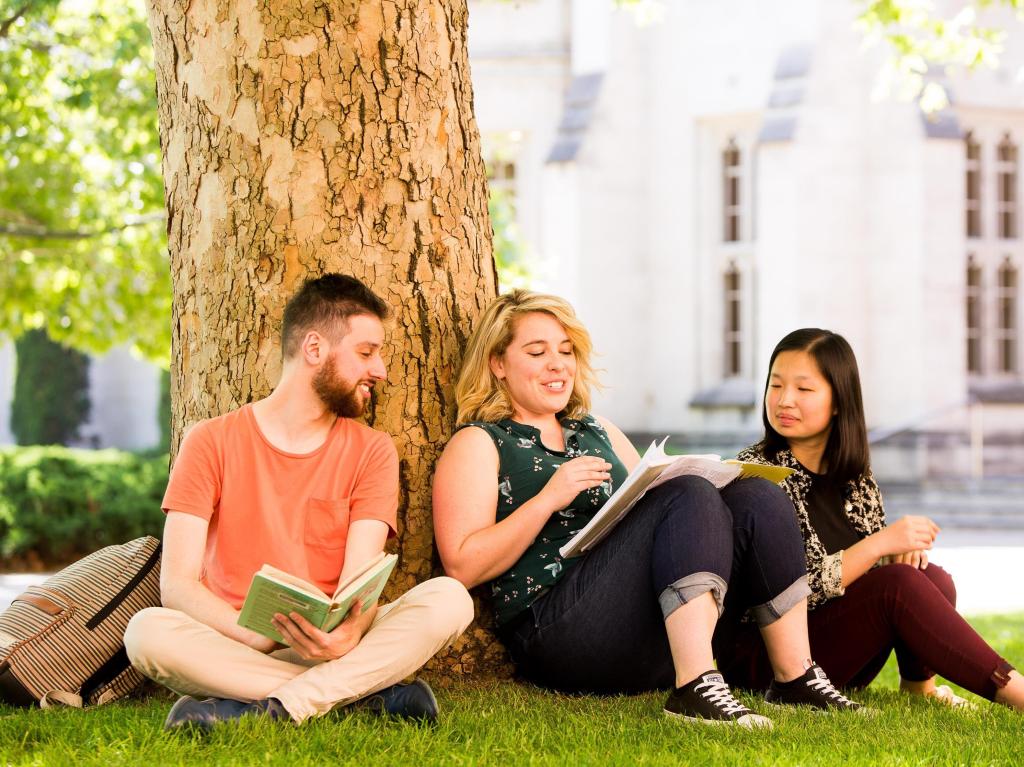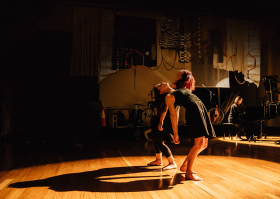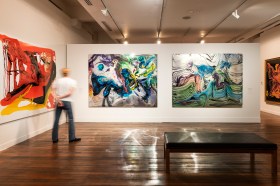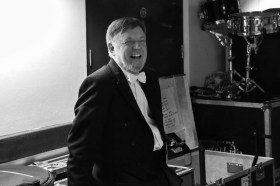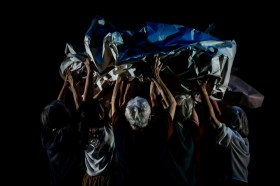Image: supplied.
Reading deeply can develop our critical thinking skills and ability to be empathetic creatures in the world. ‘There are lots of philosophical arguments for reading great books,’ said Associate Professor Sara Wills.
‘One of the most powerful arguments is how we appreciate the lives of others in their intimacy and intricacies, the way books develop empathy. …Being able to just have that capacity to live with complexity and ambiguity and understand that there is a much richer range of experience than you can ever have in your whole life.’
Wills convenes a Masters level course called The Power of Ideas: Ten Great Books at the University of Melbourne. The course was developed for the Executive Master of Arts, which is often described as the equivalent of a Master of Business Administration (MBA) for the Arts and uses the humanities as a platform for developing ideas that are useful in a business, government and community context.
‘What I’m hoping students take away from the Ten Great Books subject is that great books can help us to live a life that is worth living, expand our range of human experience and provide a space where we can be alone with others – a kind of intimate experience of interacting both with the author, but also another community of readers, as well as the lives of others. There are practical and ethical reasons for reading – I really think it can help us to develop a good life,’ said Wills.
But how do you decide what goes on a list of only ten great books? For Wills, it is one of the hardest things she has to do each year.
‘Coming up with a definitive list of great books in our day and age is in many ways an impossible task,’ she said.
‘I wanted a selection of books that went across a historical period, so I didn’t want to just read contemporary books. I wanted books that would stretch my students to go back in time to other places, other contexts, other situations. I wanted books which stretched them outside their own cultural experience as well. I wanted books that also reflected contemporary issues that still concern us today, books that speak to our concerns in the twenty first century but have something which is also particular to their age.’
By allocating time to become deeply immersed in a diverse collection of works that span memoir, natural sciences and fiction, Ten great books harks back to an era of certainty. A time when universities — for better or worse — turned to great thinkers and scientists to collate a canon of works as required learning for students.
‘What we saw, particularly in the 1990s during the culture wars was basically a lot of vigorous and quite fierce debate about what students should read in courses at university. This was a debate that pitched traditionalists against those who were called at the time multiculturalists, or in other words who wanted multiple cultures represented…. what has been interesting recently is we’ve come back to an idea where we’re studying great works through a revised perspective. It isn’t just dead white men from the west if you like, it reflects a diversity of cultures,’ explained Wills.
The course positions a work of fiction like Wuthering Heights by Emily Brontë alongside political philosophy by Thomas Hobbes to allow for gender diversity and a breadth of human experience and ideas.
‘We all think of Wuthering Heights as a great love story… but it is a harrowing book to read. The characters are driven by a range of emotions, it is happening at a time of great industrial transformation in England and great upsetting of the social class system. All this is reflected in the novel and you have this extraordinary development of characters who are driven by their passions,’ said Wills.
‘We have all these other books that are quite rational in the way they are presented, but if we don’t take away from reading a great book that as humans we are driven as much by our emotions and the irrational in us as by the rational, then we miss something very important about being human.’
The selection of books each year also draws on expertise in the faculty. Dr James Bradley, a lecturer in the History and Philosophy of Science program, guest lectures on Charles Darwin’s On the Origin of Species.
‘A huge number of books have been transformative in the way they have changed the world. By putting together a subject like ten great books, you are allowing the students to focus on texts that have transformed the world in some way or other and allowing them to engage with a whole work in a way they probably wouldn’t do unless they were studying a subject like this. I think it allows detailed exploration of books and ideas that have changed the world,’ he said.
‘Ideas have this kind of genealogy that is very complex. In the end it is about is critical thinking as much as anything else. It is about questioning what you are reading and understanding that the world is a complicated place.’
And what was the students favourite ‘great book’ this year? Wills said she feels it was more or less a tie between George Orwell’s dystopian novel Nineteen Eighty-Four and Bronte’s Wuthering Heights. Students were also fascinated by The Qur’an, believing the insight provided into this work really changed their understanding of how we might think about Islam today.
But Wills doubts she will teach the same books next year. ‘There’s just so many to choose from!’ she said.
Ten Great Books
The Qur’an
The Tempest
Leviathan
Wuthering Heights
Das Kapital
On the Origin of Species
Nineteen Eighty-Four
Silent Spring
Reading Lolita in Tehran
The Narrow Road to the Deep North
